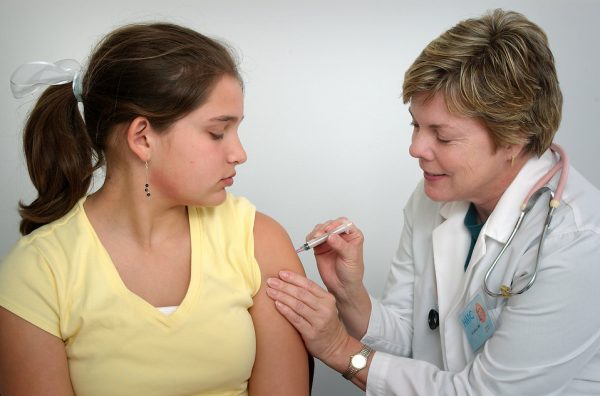
Germany plans to introduce fines of $2,800 for parents who refuse to get their children vaccinated
Thursday, June 01, 2017 by Tracey Watson
http://www.policestate.news/2017-06-01-germany-plans-to-introduce-fines-of-2806-for-parents-who-refuse-to-get-their-children-vaccinated.html

Hermann Gröhe, Germany’s minister of health, has decided to introduce tough new measures to clamp down on the increasing number of people refusing to vaccinate their children. Under the new legislation, which will likely go into effect next month, parents who do not consult their healthcare providers about vaccinating their children could face fines of $2,800 (around 2,500 euros). Such children could also face expulsion from their daycare facilities if reported on by the parents of other children. However, some members of the upper house of the German parliament have voiced concerns that forcing kindergartens to report such parents to the health authorities might be a breach of data protection laws.
Gröhe’s hardline approach is in response to a growing number of measles cases in Europe. While only 325 such cases were reported in Germany in 2016, 410 new cases had already been reported by mid-April of this year. The government is insisting that all adults born after 1970 need to ensure that they are vaccinated, and if they have only received one jab, must make plans to get their second shot. [Related: If vaccines are life-saving and risk-free, then why has the secretive Vaccine Court paid out millions in compensation to its victims?]
While the sharp rise in measles cases in Germany and other European cases is indeed unfortunate, it is illogical to believe that they are the fault of those who are not being vaccinated. The BBC is reporting that since the double-dose anti-measles vaccine was introduced across Europe, the number of measles cases has actually dropped sharply, according to the World Health Organization (WHO). In fact, the 5,000 cases reported in Europe in 2016 represent the lowest number ever recorded. It is simply not feasible that a continent which had the lowest number of measles cases ever in one year, should blame a lack of vaccination for outbreaks within the following four months.
These measles outbreaks have been occurring in specific parts of Europe, with seven countries reporting the greatest number of cases: Italy, France, Germany, Poland, Ukraine, Switzerland and Romania. The highest number of cases overall were reported in Italy and Romania, and the WHO blames this on the fact that less than 95 percent of the people in those countries have received their second doses of the measles shot. [Related: Discover the truth behind the measles outbreak in Minnesota.]
One of the countries conspicuously absent from the list of areas most affected is Sweden. This is particularly interesting since that country has taken the progressive decision not to force its citizens to vaccinate their children. The Swedish parliament has recognized that such mandatory vaccinations would be in direct violation of their constitution, and has also noted that there has been “massive resistance to all forms of coercion with regard to vaccination” from the public. In addition, after consulting data from Sweden’s National Health Federation (NHF), they have acknowledged that the MMR (mumps, measles and rubella) vaccine causes “serious adverse reactions” in many patients.
And this does not only apply to the MMR vaccine. A recent peer-reviewed study by a group of scientists from the School of Public Health at Jackson State University confirmed that all vaccines are a) ineffective (with the exception of the chicken pox and whooping cough vaccines); and b) elevate the risk of several long-term neurodevelopmental problems and other issues, including autism, ADHD, learning disabilities, eczema and allergic rhinitis.
It is likely that the strong-arm tactics of the German government will result in a rapid increase in the number of people getting vaccinated. What will not become clear for several years, however, is how much damage those vaccinations will cause.
Sources for this article include:
OAText.com[PDF]
Tagged Under: Tags: Germany, mandatory vaccinations, measles, measles outbreak, Sweden, vaccines





